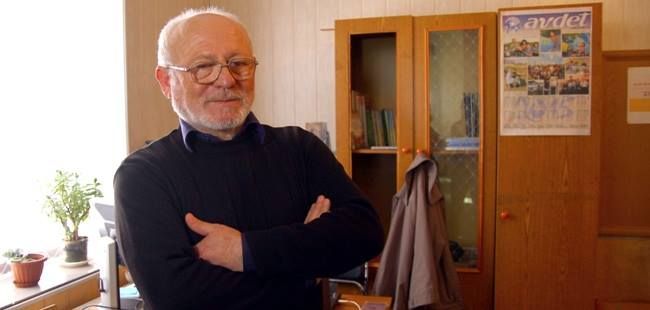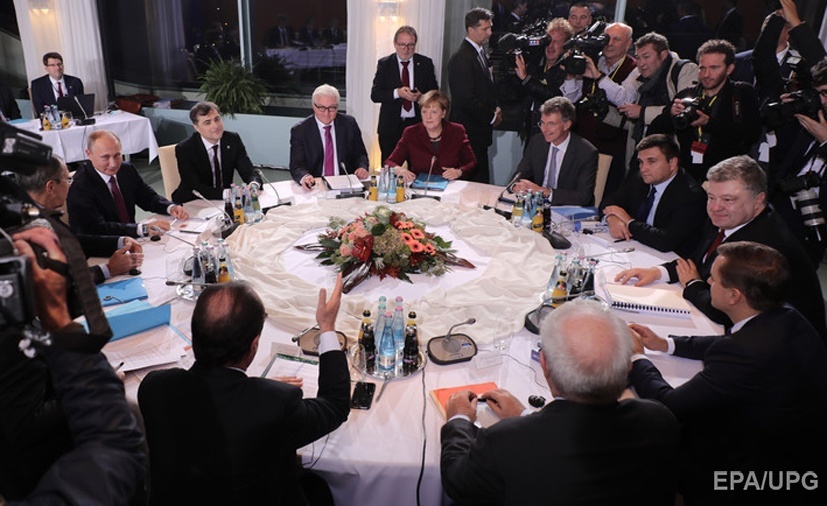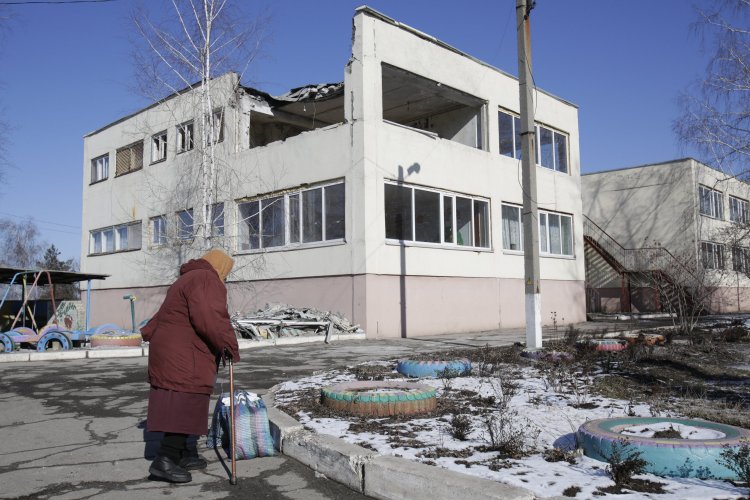15 years ago, on August 9, 1999, Russian President Boris Yeltsin appointed the obscure FSB director Vladimir Putin head of the government, calling him his “heir.”
Vladimir Putin has started his career an undistinguished bureaucrat serving on St. Petersburg city council. Over the next fifteen years he developed into a state leader of worldwide importance – in 2007, Time declared him the Man of the Year. According to Forbes last year, Putin ranked higher for global influence than his American counterpart, Barack Obama.
Novoye Vremya published speeches and quotes from Putin himself, as well as the opinions of people from various backgrounds on him and his policies.
One such popular video shows Putin’s interview from the time when he headed the Administration of the President of Russian Federation. In that interview Putin described the danger of Russia going back to authoritarianism or even totalitarianism. Ironically many of his predictions came true during his later reign.
His appointment as Prime Minister and Yeltsin’s heir got a cool reception from the political élite who evaluated Putin’s future pessimistically. “If Yeltsin declares someone his heir, this means that he is resigned about their political future. This had already happened many times,” – Gennady Selezniov, then heading the Parliament, said.
Billionaire Boris Berezovsky supported Putin. He expressed this support in various interviews: “He understands reality, the modern world, he has the will, he takes concrete measures and he is not a populist. Putin is definitely the person whose appointment makes me consider returning to live in Russia. We, the oligarchs, will support Putin’s candidacy for the president.”
However, as early as 2001, during Putin’s second year as President, Berezovsky changed his mind. “I would like to stress that although Putin’s support ratings are very high, his ability is non-existent. He could not carry out the needed measures… He is hollow, an empty shell… I was one of the first who noticed this hollowness, since I became close to him. When he came to power, I saw his hollowness, his empty promises”.
The language used in Putin’s inauguration speeches in 2000, 2004 and 2012, as well as his speech in Munich in 2007 and his “Crimean” speech in 2014 show the change in emphasis and key values of the Russian leader.
Back in 2004 famous American political expert Zbigniew Brzeziński made wry comments on Putin’s first term as President: “Mr. Putin’s regime has many similarities with Mussolini’s fascism. The fascist regime speculated on the ideas of national grandeur, discipline and exalted myth about their so-called “glorious past”. Mr. Putin is trying to combine the traditions of the Cheka (Lenin’s Gestapo, where Putin’s grandfather started his career) with the Stalinist style of governance in times of war, with Russian Orthodox Church’s claim to the status of the Third Rome and with the Slavophile dreams of the great unified Slavic state under Kremlin.”
Putin’s adherents, on their part, are showering him with compliments bordering on earnest sycophancy and common sense lost.
“How can you believe Putin wrong? Preposterous!” – Vladimir Churov, head of the Central Elections Committee, said in his interview to “Kommersant” in 2007.
Political scientist Alexandr Dugin put it even better in his interview to “Izvestiya” in 2008.“There is no more opposition to Putin’s course, and those who disagree are mentally ill and should be institutionalized. Putin is everywhere, Putin is everything, Putin is absolute, Putin is irreplaceable,” – he said.
Film director Fyodor Bondarchuk chimed in. “Vladimir Putin is the reason behind our film industry successes,” – Bondarchuk stated at Putin’s support forum in 2007.
“All the success in cinematography had to do with Vladimir Putin,” stated Fyodor Bondarchuk, a director, at Putin’s support forum in 2007.
“Once I met Vladimir Vladimirovich, my soul rejoiced, for he was a Godsend, a superhuman… Yeltsin was a destroyer, and the Lord God replaced him with a creator. I saw it immediately… In one of his former incarnations Putin was Paul the Apostle,” – the follower of the religious cult “Rus Ressurrected” said in the interview to “Moskovsky Komsomolets” in 2007.
Even Putin’s staunchest supporter, Belarus’ President Alexandr Lukashenko, took notice of his personality cult. In October 2007 he attended the press-conference for russian regional media. After watching several meetings of Putin’s “Yedinaya Rossiya” party during this press conference he became concerned that Russia might be heading back to USSR, “when it was normal to jump and shout “Glory to the Communist Party!” during political meetings.
Years of Putin’s policies polarized public opinion – from undisputed support from his close and controlled officials and the majority of Russians to harsh criticism on part of the opposition and intellectuals.
“I thank God for Putin and respect Yeltsin for two things he did in his life. The first is that he handed in his party ticket. The second is that he brought Putin to power,” – film director Nikita Mikhalkov said in 2008.
“Your democracy knows no bounds!” – Valentina Matviyenko, governor of St. Petersburg, praised Putin in 2008.
“Allah appointed him to this post… Putin is God’s gift, he gave us freedom… Such a person is a true discovery for Russia. While his health permits it, we have to beg him on our knees to rule the country,” – Ramzan Kadyrov (head of the Chechen Republic) said in 2007.
“The only reason behind Putin’s actions is he himself. His fears and his complexes drive him. There is nothing else. This is someone who is concerned with himself exclusively, his inner state, his wants, his disorder, his fear. To repeat, his fears and complexes guide him .” – Yevgeniya Albats, editor in chief of The New Times, said in 2013.
“Putin said: “Magnitskiy (the lawyer, who died a martyr in Matrosskaya Tishina prison), he died of heart failure. I think he died of Putin’s heart failure,” – Yuriy Nornstein, cartoonist, commented.
“Putin is not an average person, he is a mediocre person. Mediocre, ugly, vengeful, politically short-sighted, not too well-educated, etc. We can go on with this list of unbecoming traits. And many of his deeds, reactions and habits betray this mediocre man, who suddenly found himself in charge of boundless resources and influence. Now, when he is there, he is starting to show his true colors,” – Artemiy Troitskiy, musical critic, said in 2011.
Kremlin-controlled media continue working on “Putin’s personality cult” against the backdrop of Crimea annexation and conflict in Donbas. As a result, his support among the population reached inconceivable heights, having overcome the 80% barrier.
Vladimir Putin’s “third” term ends in 2018, when he will have the right to get re-elected for yet another six-year term thanks to a skillful amendment of the Constitution. What new plans Vladimir Putin will hatch and what his last words will be remains a historical intrigue, which will affect the course of world politics.
Due to aggressive policies against Ukraine Putin has already become a pariah in the eyes of the global community – top world publication covers feature Putin as an aging bloodthirsty dictator.
[hr] Source: SprotyvTranslated by Mariya Shcherbinina, edited by Anna Palagina








